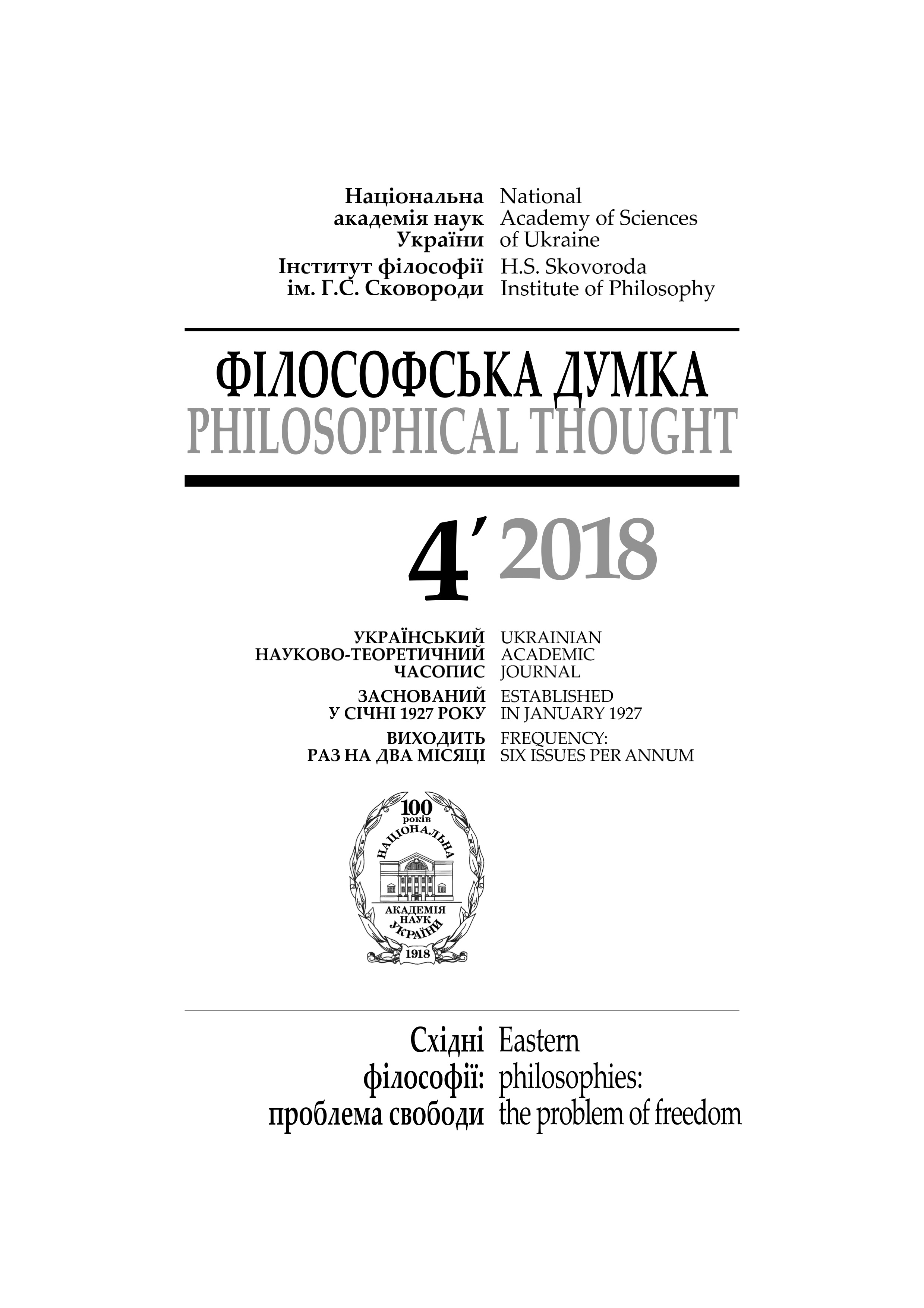Quantum Mechanics and Consciousness: No Evidence for Idealism
PHILOSOPHY OF MIND
Ключові слова:
quantum mechanics, consciousness, matter, collapse, idealism, physical realism, cosmopsychismАнотація
The article deals with the issue of whether quantum mechanics provides evidence for the view that ordinary matter is the product of the processes that essentially involve conscious- ness (in collapses, or reductions, of quantum-mechanical waves). It is pointed out that if this were the case, this would have tremendous consequences that anyone who takes science seri- ously can hardly welcome — it would make nonsense of the whole natural pre-animal his- tory, and would also make it extremely difficult to make sense of animal evolution and hu- man history. It is argued, however, that there is no good scientific evidence for the idealistic (consciousness-involving) construal of quantum-mechanical processes; moreover, unequiv- ocal experimental refutations were produced but not made widely known. In the second part, the recent attempt to draw quantum mechanics in support of idealism by Bernardo Kastrup is discussed and found wanting, because in so far as his defense of idealism is suc- cessful, the resulting kind of idealism (cosmopsychism) stands to the results of quantum mechanical experiments in the same relations as common physical realism.
Посилання
Durr,S.,Nonn, T.,Rempe,G.(1998). Origin of quantum-mechanical complementarity probed by a ‘which-way’ experiment in an atom interferometer. Nature, 395, 33-37.
Eichmann, U. et al. (1993). Young’s interference experiment with light scattered from two atoms. Physical Review Letters, 70, 2359-2362.
Feynman, R. (1965). The Character of Physical Law. London: The British Broadcasting Corporation. Feynman, R., Leighton, R., Sands, M. (1965). The Feynman Lectures on Physics (vol. 3). US: Addison-Wesley, 1965.
Goode, E. (2013). Paranormalism and Pseudoscience as Deviance. In Pigliucci, M., Boudry, M. 104(eds). Philosophy of pseudoscience: reconsidering the demarcation problem (pp. 145-163). Chicago: University of Chicago Press.
Kastrup, B. (2017a). On the Plausibility of Idealism: Refuting Criticisms. Disputatio,9 (44), 13-34.
Kartrup, B. (2017b). Making Sense of the Mental Universe. Philosophy and Cosmology, 19, 33-49.
London, F., Bauer, E. (1939) La theorie de l’observation en mecanique quantique. Paris: Hermann & Cie. Mandel, L. (1999). Quantum effects in one-photon and two-photon interference. Review of Modern Physics,71, 274-282.
Radin, D. (2006). Entangled Minds: Extrasensory Experiences in a Quantum Reality. Paraview
Pocket Books.
Stapp, H. (1993). Mind, Matter, and Quantum Mechanics. Berlin: Springer-Verlag.
Stapp, H. (2007). Mindful Universe: Quantum Mechanics and the Participating Observer. Berlin:
Springer-Verlag.
Stapp, H. (2017). Quantum Theory and Free Will: How Mental Intentions Translate into Bodily
Actions. Berlin: Springer-Verlag.
Weinberg, S. (1993). The First Three Minutes. Basic Books.
Wigner, E. (1961). Remarks on the Mind-Body Question, In Good, I. J. (ed.) The Scientist
Speculates (pp. 284-302). London: William Heinemann, Ltd.
Wigner, E. (1964). Two Kinds of Reality. The Monist, 48 (2), 248-264.
Yu, Sh., Nicoli , D. (2011). Quantum mechanics needs no consciousness. Annalen der Physik,
(11), 931-938.
Zeilinger, A. (1999). Experiment and the foundations of quantum physics. Review of Modern
Physics,71, 288-297.
Zou, X. Y., Wang, L. J., Mandel, L. (1991). Induced coherence and indistinguishability in optical interference. Physical Review Letters, 67, 318-321.
##submission.downloads##
-
PDF (English)
Завантажень: 354
Опубліковано
Як цитувати
Номер
Розділ
Ліцензія
Автори, які публікуються у цьому журналі, згодні з наступними умовами:
- Автори зберігають авторське право і надають журналу право першої публікації.
- Автори можуть укладати окремі, додаткові договірні угоди з неексклюзивного поширення опублікованої журналом версії статті (наприклад, розмістити її в інститутському репозиторії або опублікувати її в книзі), з визнанням її первісної публікації в цьому журналі.
- Авторам дозволяється і рекомендується розміщувати їхню роботу в Інтернеті (наприклад, в інституційних сховищах або на їхньому сайті) до і під час процесу подачі, так як це може привести до продуктивних обмінів, а також скорішого і ширшого цитування опублікованих робіт (див. вплив відкритого доступу).


